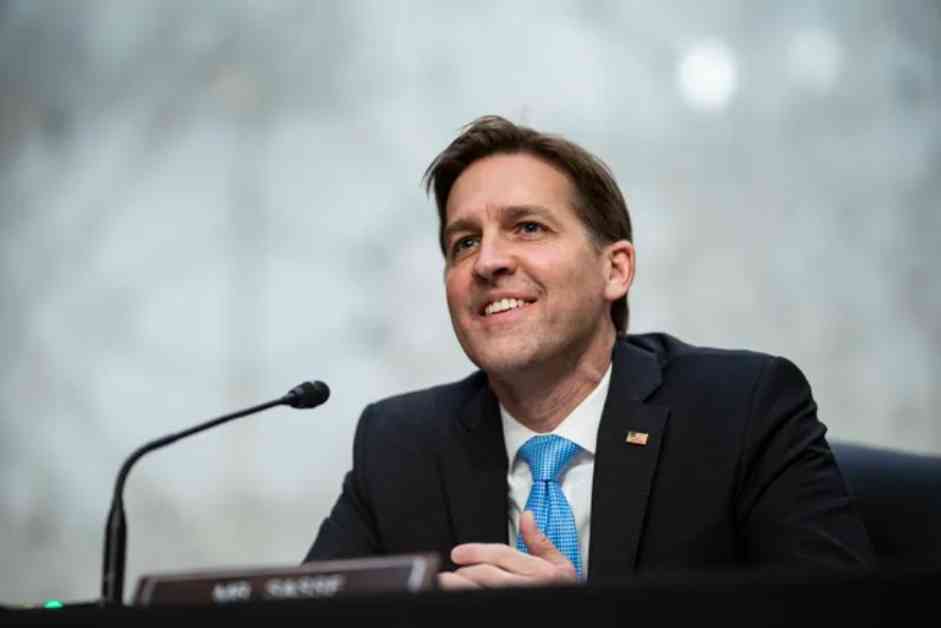Former University of Florida President Ben Sasse has come under scrutiny for his spending practices during his 17-month tenure, with state officials calling for an investigation into the significant increase in expenditures in the university’s presidential office. According to an investigation by The Independent Florida Alligator, spending in Sasse’s office more than tripled compared to his predecessor, President Kent Fuchs. Sasse defended his use of institutional funds, attributing the rise in spending to several new initiatives aimed at reshaping the core curriculum, establishing a graduate campus in Jacksonville, and enhancing the post-tenure review system. He refuted allegations of inappropriate spending, stating that all funds were allocated towards important university initiatives.
The report by The Independent Florida Alligator revealed that Sasse’s office spent $17.3 million during his first year, a stark increase from the $5.6 million spent by President Fuchs’ office the year before Sasse took over. The substantial rise in spending caught the attention of Florida state officials, including Governor Ron DeSantis. DeSantis’s communications director, Bryan Griffin, emphasized the state’s commitment to the prudent use of funds and announced discussions with university leadership and the Board of Governors to investigate the matter. Similarly, Florida state CFO Jimmy Patronis expressed concern over the “exorbitant spending” and pledged investigatory support from his department to the State University System of Florida’s board of governors.
In response to the criticism, Sasse defended his hiring practices within the university’s presidential office, noting that he had recruited individuals with whom he had worked in previous roles, both in politics and other sectors. He highlighted that the university’s board and selection committee had endorsed his approach to staffing, emphasizing the importance of expertise and experience in driving key university initiatives. Sasse also outlined the costly projects he had sought to undertake during his brief presidency, such as expanding K-12 charter schools statewide and collaborating with Florida’s thriving space industry. He maintained that each initiative, if realized, would greatly benefit the state’s residents.
As the University of Florida transitions under interim president Kent Fuchs, questions arise about the continuity of Sasse’s ambitious goals and projects. It remains unclear whether Fuchs intends to pursue the initiatives set forth by his predecessor. The university’s stance on academic reforms and strategic directions moving forward will shape its future trajectory. Sasse advocated for a robust debate on academic reforms, criticizing the traditional operating methods of higher education institutions. He called for increased speed and flexibility in decision-making processes, challenging the status quo of bureaucratic structures that often impede progress.
Despite stepping down as president, Ben Sasse remains affiliated with the University of Florida as president emeritus and a professor at the Hamilton Center, focusing on Western civilization studies. The institution’s trustees granted Sasse full severance and allowed him to continue in an alternative capacity until at least 2028. Sasse’s tenure as president was marked by controversy, with dissent from the university’s campus community regarding his views and leadership style. Faculty members expressed a lack of confidence in the search process that led to Sasse’s appointment, reflecting broader discontent with his tenure.
In conclusion, Ben Sasse’s defense of spending levels during his time as University of Florida president has sparked debate and raised questions about financial stewardship and strategic priorities within the institution. The scrutiny of his expenditure decisions underscores the importance of transparency and accountability in higher education leadership. As the university navigates a period of transition, the decisions made by interim president Kent Fuchs will shape the course of future initiatives and reforms. The legacy of Ben Sasse’s presidency at the University of Florida serves as a point of reflection on the challenges and complexities of academic leadership in a rapidly evolving higher education landscape.


